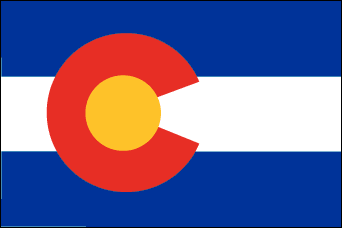DENVER — A woman has sued a convenience store here, claiming her 19-year-old son died after smoking Mr. Smiley, a form of fake marijuana similar to Spice, that she says he bought from the store.
Nicholas Colbert died in September 2011. The Kwik Stop, located at 1125 S. Chelton Road, was named as the defendant in the U.S. District Court suit which alleges the store sold the product despite the fact that it contained chemicals that had been banned by the federal government in May. No criminal charges have ever been brought.

The federal government has been in a race with producers of artificial marijuana to keep harmful chemicals off the market but as some are declared illegal manufacturers alter their recipes to include those still legal but equally toxic, according to the National Institute on Drug Abuse. Sometimes the products are labeled incense and "not for consumption" to get around the law, authorities believe.
In Colorado investigations are underway into the deaths of three people and hospitalization of dozens of others after suspected ingestion of fake marijuana. Although marijuana has been legalized retailers are not allowed to sell to minors so the fake marijuana has a strong appeal to teenagers.
The lawsuit was filed by Nicholas's mother, Stephane Colbert, and according to her attorneys, is not aimed at making money, but at preventing sale of the products at gasoline stations and other retail outlets.
DURANGO — Contaminated gasoline was inadvertently sold to 22 stores in southwest Colorado, Arizona, and New Mexico.
Western Refinery said the contamination was due to a gasket failure which allowed water to leak into a petroleum storage tank near Gallup, NM.
Giant gasoline outlets in two Colorado cities, Durango and Cortez, got the fouled product. In New Mexico stores affected were in Rio Rancho, Kirtland, Jamestown, Aztec, Gallup, Santa Fe, Farmington and Albuquerque. In Arizona stores in Springerville, Show Low, Tec Nos Pos, Holbrook, Flagstaff, Pinon, St. John's and Keans's Canyon took delivery of the gasoline.
The refinery established a hotline and promised to pay for any substantiated damage the stores and their customers suffered.
LOVELAND — A convenience store owner and his wife were arrested in an undercover sting aimed at ferreting out retailers who pocket the bulk of the profits from big win Lottery tickets.
Sukhdev and Tapinderjit Phagura face charges of forgery and theft. They allegedly told an investigator posing as a customer her ticket paid only $15 when it was worth $5,000. The ticket was among three the investigator put together, one a $5,000 winner, and took to the store. Sukhdev Phagura ran the tickets through the Lottery machine and declared two losers and the other a $15 winner, according to the criminal report. He handed over the money and kept the ticket for several months, constantly re-checking to see if it really was worth $5,000, the complaint states. When he determined it was he took it to Fort Collins for payment. The lottery official there pretended he had computer problems, delaying the payment until authorities arrived to arrest the retailer.
State investigators targeted the Mini Mart owners after they redeemed five large winning tickets over several years.
In a continuing crackdown on compliance with lottery rules, 36 clerks and others have been charged with felonies during the past five years.
But the lottery has conducted undercover investigations on nearly a thousand retailers in the past few years and most met the test. "The vast majority of our retailers and their clerks are honest in dealing with Lottery customers," lottery officials said in a report on their findings.
DENVER — A Colorado marketer has created a gasoline auction, the first of its kind in the nation, in which motorists bid for the lowest price per gallon.
Paul James, owner of four Rexoco stations, says he has sold gasoline for as low as a penny a gallon, which at one point as gasoline prices rose, meant savings of about $105 on a fill-up, but he said most average savings of about 68 cents a gallon. He said he can afford to do it because he gets paid by everyone who participates in the auction. He does it all on the internet, running a pay-per-click system. Each bid costs fifty cents, allowing a driver to compete for a discounted rate on gasoline or gasoline gift cards.
Denver TV channel 7News tested the auction. It took two bids to win a price of $3.05 a gallon, which after subtracting the cost of the bids, amounted to a savings of $3.40 for nine gallons.
James explained that every bid placed works its way down, so it could stop at a penny, which he said happened several times.
A single voucher can only be redeemed once, has to be used in seven days at one of his Rexoco locations in the state, and is capped at thirty gallons of gasoline. He has stations in Denver, Greeley, Fort Collins, Lyons, Downeville and Silverthorne. Each station has brand name gasoline like Conoco.
James told Channel 7News he hopes to expand the auction to other convenience stores. He said, "We are trying to do our part to make buying gas a little more pleasurable and hopefully bring happy customers to our locations." Will drivers go to the trouble? Especially if they don't live in a city where he has a station? Says James, "I think there's a segment of people out there who really love saving money and will go to some lengths to make that happen."
One customer told another TV reporter she hadn't paid full price for gasoline in two months by taking part in the auction.
Originally published in the December 2013 issue of the O&A
Marketing News.
Copyright 2013 by KAL Publications Inc.
Serving the 13 Western States, the World's Largest Gasoline, Oil, Fuel, TBA and Automotive Service Market